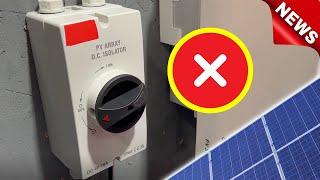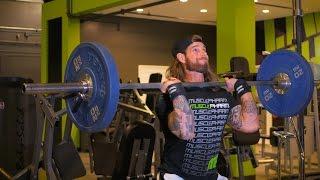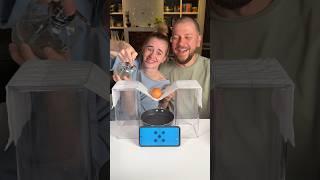
DON'T Install DC Isolators On Solar, Electricians Warned
Комментарии:

Seen by some "experts" as a "possible" fire risk. Time to get a grip with the fantasist theoreticians.
Ответить
Question. What is a dc isolator, what does the circuit look like with one installed, how does it start fires?
Ответить
I guess you should’ve put all of your solar equipment on cement board, so that even if the switch burns up, it can’t catch anything on fire. Same with your batteries, inverters, solar charge controllers. Keep everything at least 20 feet from your house so that if it does catch on fire, it doesn’t burn your home down too. Stop putting solar panels on your roof. That should be common sense. Get some RF connected smoke detectors. Then buy some CO2 fire extinguishers to keep around.
Ответить
It's the law in Australia, illegal install if there is no isolator.....!!
Ответить
Would fuses have prevented the panel fires?
Ответить
You don't mention why DC isolators cause fires, is it amp rating, quality or something else. On a sailing vessel a DC isolator closest to the solar panels makes sense, in the event of a short in the solar cable, No? P.S. Victron products are good but also wrote the book on excuses. Almost impossible to blame their products for failures. It'll always be your fault.
Ответить
Just how exactly can an dc isolator cause a fire.. If there is no power how does it set on fire...
Ответить
Solar panels are current sources and sholud be handled like those. Never open the circuits in current sources , they have to be short- circuit. solar inverters use this method to inactivate the solar power. input.
And you cannot protect current sources with fuses.
Cuurent sorces got a high internal resistace (Ri) , high open loop voltage so exact the other way round than voltage sources like the electical mains.
When install solar panels, never place connectors , taps or splittings underneath the roof /attic. Install wires in one piece from the panel to the inverter/charger. Use high cross sectional wire gauges, not because lower loss, but rather of the mechanical sturdiness. Install connection boxes in a fireproof environment e.g on a brick walls. Do not store flammable items in the vicinity of inverters and solar installations.
Battery banks shoud not be installs inside of homes / flats. The best is a separate shelter apart from the house.

My dc isolators are rated for 400V while it’s 360 volts so it’s should be fine, never had a single problem so far..
Ответить
After long talk said nothing
Ответить
After long talk said nothing and advertising alots
Ответить
Back in 2010 I got a warning from my solar installer to never disconnect the solar during the day.
I now live offgrid with a completely new installation by persons I trust. They told me the same: There is a thick isolator: disconnect during the night, or extreme emergency.
Victron MPPT's don't disconnect, but you can turn them "off": they will let the solar float, and hence it is safe to disconnect. The disconnect is for a 202V max measured setup.

What is the difference between ac and dc isolators . Both have make and break contacts and should be rated at appropriate capacity. Normally there would be arc quenching filters to avoid contact arcing. As these isolators are only operated on a very low duty cycle it seems that the installation may be suspect.
Ответить
As an electrical engineer I would just like to ask all the Sparky's on this channel how much temperature they think a small arc welder with IGBT's (so D.C.) generates.
Then think of why they call it an arc welder😂

Will the party telling you not to install isolators assist you if you have to replace an inverter? Are they going to come out and safely isolated because there are not many ways you can do that?
Ответить
Surely in the event that so equipment is catching on fire it should be placing something like a metallic enclosure more as a common sensing and a regulatory thing so you can have adequate ventilation but it will contain a fire
Ответить
Given that it is frequently going to be difficult to establish the exact cause of an electrical fire in a PV installation, surely there should be equal emphasis on both:
a) correct, accredited system design and installation, and
b) comprehensive consequential damage insurance provided by the installer (backed up by the equipment supplier)
...anything less is going to result in a bunch of companies squabbling over who's to blame (as with Victron).

I like the 'face fuzz' I bet, and I seldom bet, it will look great in a couple more weeks!
Ответить
I missed the arguments against DC Isolators - nothing found! So - what is this all about? We all know: PV can put an additional fire risk to your house. I try to avoid as many components as possible and just install the really necessary. An isolator switch is optional, and if properly produced and installed there is no additional risk imho. When contacts are bad - of course you have a risk.
Ответить
Most commercial solar panel fires (according to a family member who is Fire Dpt Manager in a large capital city) is due to DC electrical arc's in combiner boxes or breaker switches.
Plastic degrades with time, UV and Weather - and makes exterior boxes a liability. Not many plastics have the outdoor life of the solar panels. Even Marine UV plastic (hard UV protection used for Marine Plastics) has an estimated lifetime of 10-20 years.
Rooftop solar fires rarely happens on AC based Micro-inverter based sites (as per the fire Dept. Manager - a 10:1 ratio taking distribution of Micro Inverters VS DC Solar into account) - needless to say he has installed solar with Micro Inverters.

Isolator is different to a Current breaking device, big difference.
One is meant for off load circuit isolation, the other is capable of breaking the max voltage and max current.
Learn the difference.

How about explaining why the DC isolators failed OR how they caused the fires instead of just saying the Insurance companies do not recommend them. Are we to assume the DC isolators were made of plastic and the connections were weak, got hot and caught fire? Perhaps we can just use a metal mechanical disconnect instead? Avoid plastic enclosures that house electrical connections so that incase the connections or breakers fail the plastic enclosure does not catch fire and burn the house down? Please be more specific next time.
Ответить
Sounds more like component failure, not installing safety devices sounds bonkers to me, cuz that WILL cause a fire.
Ответить
Please explain why every solar panel don’t have a fuse, to prevent fire?
Ответить
I think "GingerBread" was the inserted word ;-) 🤞
Ответить
Auditing many sites I find so many poor quality DC cable terminations inside external DC isolators. It is a question of cheap and poor quality workmanship.
Frankly, inverter internal DC isolators do not isolate the DC voltage supplied to the inverter from the PV module strings. This leaves live DC open to potentially electrocute a careless installer. And there are many of those around….

Can I ask a question please. I have a PV solar panel system set up away from house. Produces 3.2 Kw on the best day. It's a 48 V DC OFF Grid system NO Inverter. I have a approx 50 Litre copper cylinder connected to my radiators to Pre Heat them. Two 3 bar PRV Valves fitted, One on Cold flow, One on Hot flow. Circulation Pump and Sensor powered off 230AC. Do you know of any 48 V DC Temp Sensor etc to Cut off the DC supply to cylinder In the event of the Pump failing or AC current cut off. Thank you
Ответить
What is the point of fitting a DC insulation switch 20 cm away from the DC switch on the inverter? I see the point of having a switch outside when the inverter is hidden at the back of the attic.
Ответить
Deye recommends a DC isolator separately to the inverter, but also has a DC shutoff - I reckon I'll stick to the Deye manual.
Ответить
made in china
Ответить
I fail to see why an isolator has anything to do with a failed inverter or a failed panel.
Ответить
I have only heard about fires starting in polarized circuit brakers that were connected backwards. The newer circuit breakers are non-polarized and does not require you to observe polarity. I feel that there should be a circuit breaker before the charge controller and another circuit breaker after the charge controller even if the charge controller has it's own circuit breaker.
Ответить
I wont put them ON the house. I prefer a shed to hold all of the Solar. Keep all the nasty away from the house. It also makes roof repair a bit simpler.
Ответить
Is there a reason why they cannot be installed ?
Ответить
I just use the solar fuse holder as the isolater, open it up, and magically, the panels are isolated...
Ответить
I installed one I could smell it sizzling on hot days removed it it has been arking for some time I removed it and installed straight to inverter no more smell and I'm not sure if I'm getting more power or if weather is better 😂😂😂
Ответить
PEOPLE STILL SEEM TO CONFUSE VOLTAGE WITH AMPERAGE ? Different animals.
Ответить
Ac isolators rebaged as dc....
Ответить
Mount everything on non-flammable material, such as a brick or concrete wall. In case of arcing only that module burns off, the rest will be spared. This is also recommended by multiple manufacturers.
Ответить
The issue is the crazy high dc string voltage
Ответить
Are all these fires involved with high voltage strings??! I dont ever want to go over 200 v and only am doing 150 Voc any ways...
Ответить
blaze
Ответить
Well You can take it out on grid tie inverters, those have one included, had for years, not that common to see that on off-grid/hibryd, so if You don't have it, You have to install one, or maybe this rec. Says not to use more than one? Sounds weird to me. If they blame safety devices i mean....
Ответить
Maybe a switch that turns off the inverter switch first, then followed by the battery and PV disconnects, ... would be the better way.
Ответить
I don't get it, so you're suppose to work on live DC line?
Ответить
I own one which have 2 switches so you break the path on multiple routes works good even under load
Ответить
So... any of those council members in jail or something?
Ответить
Grizzly Adams.
Ответить


























